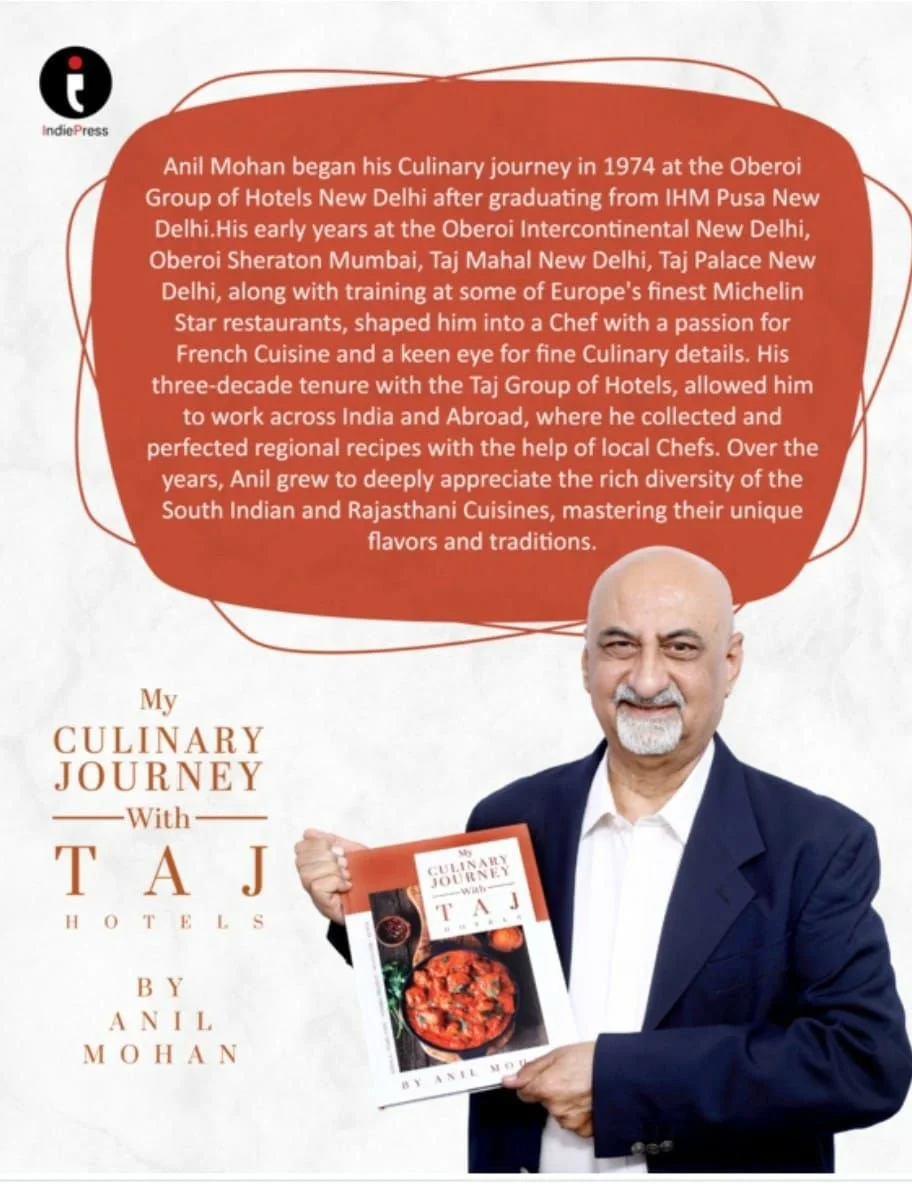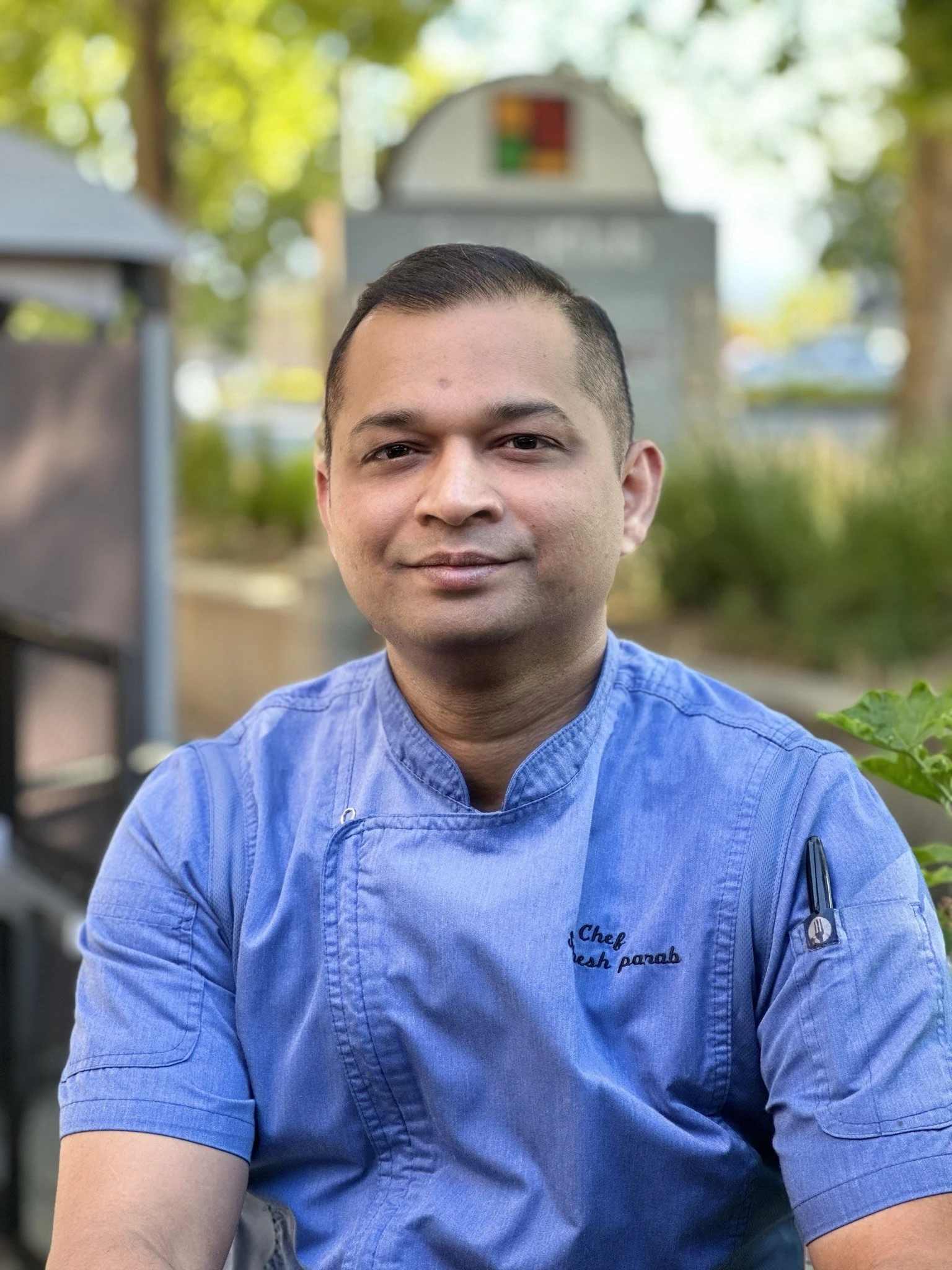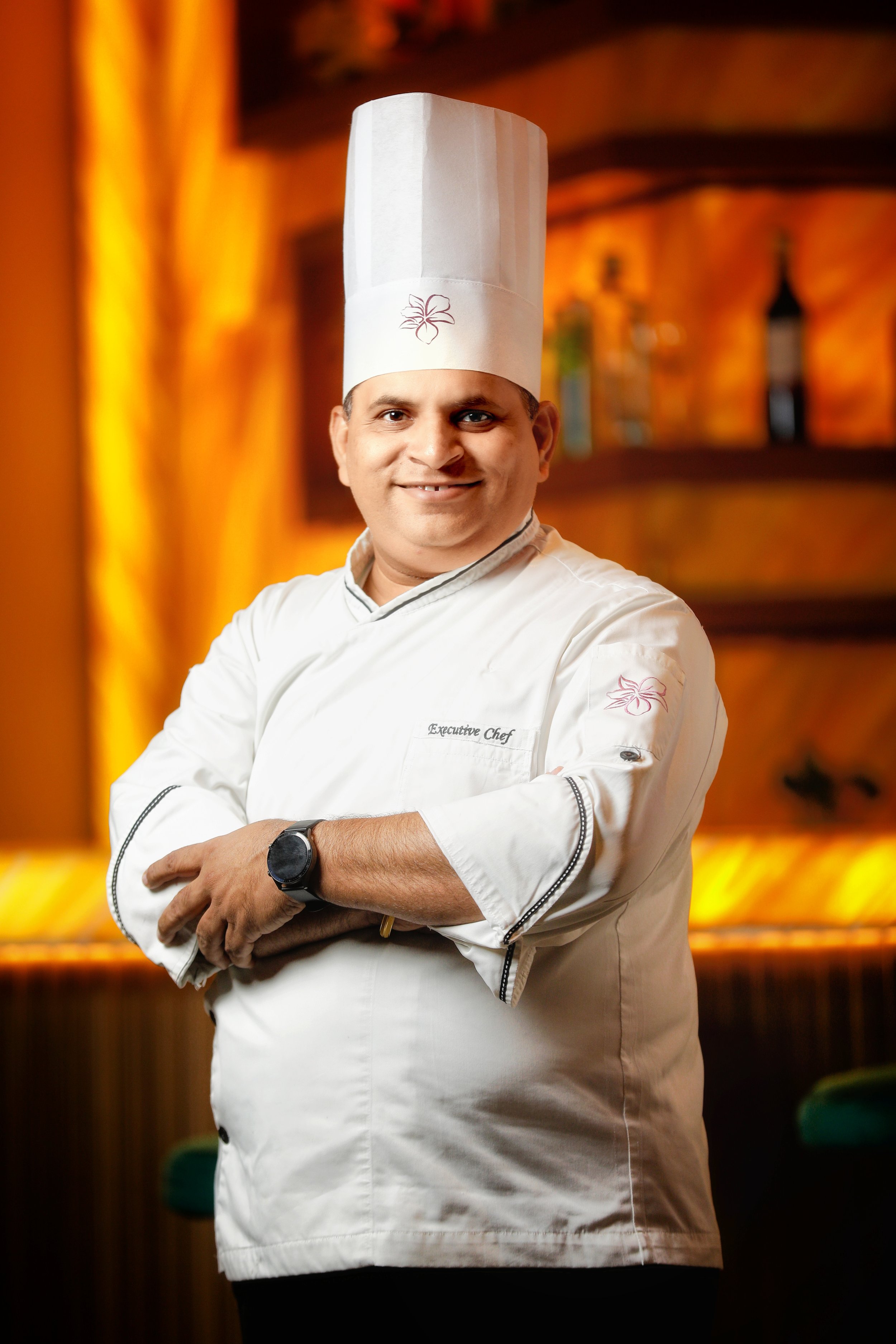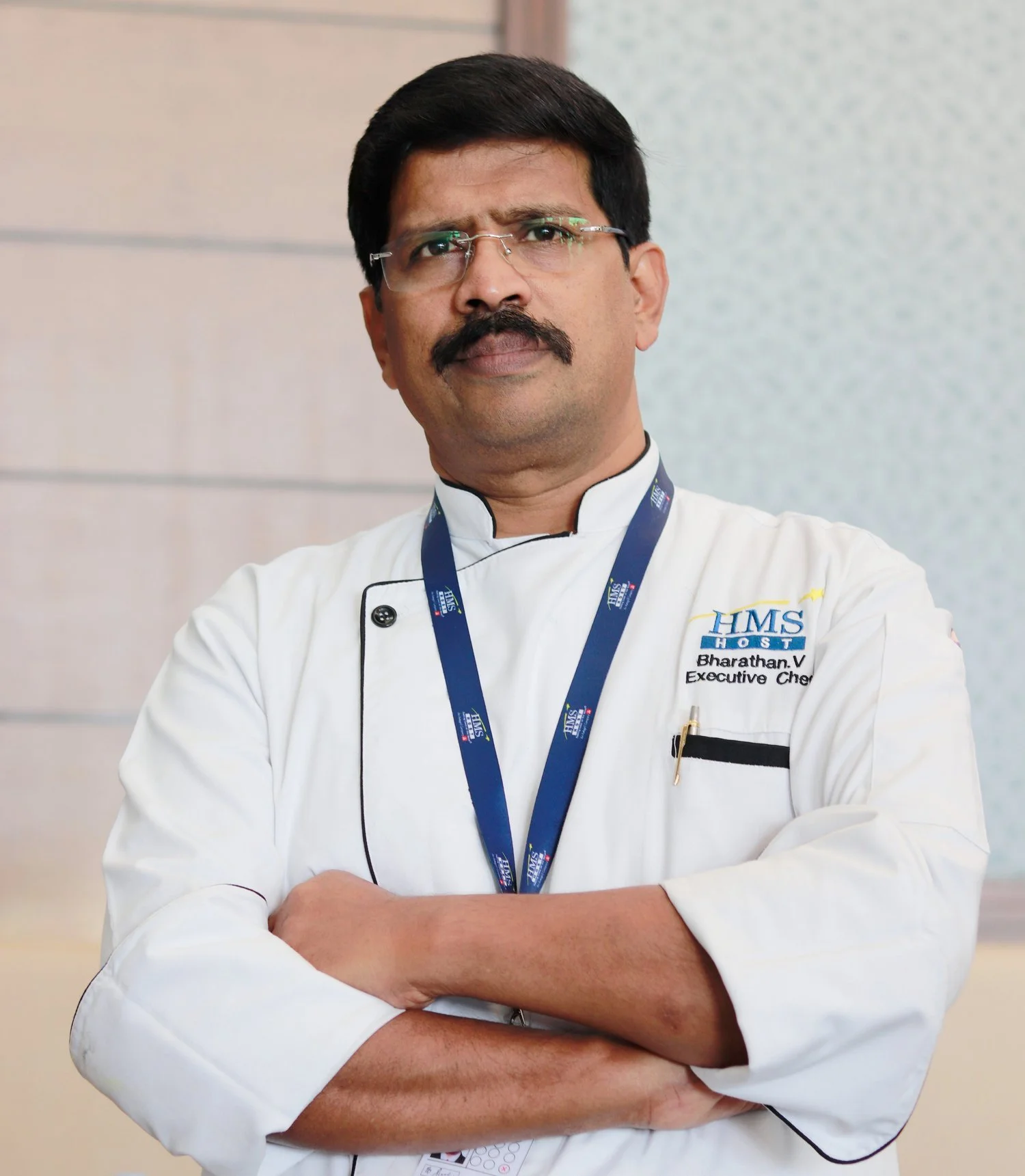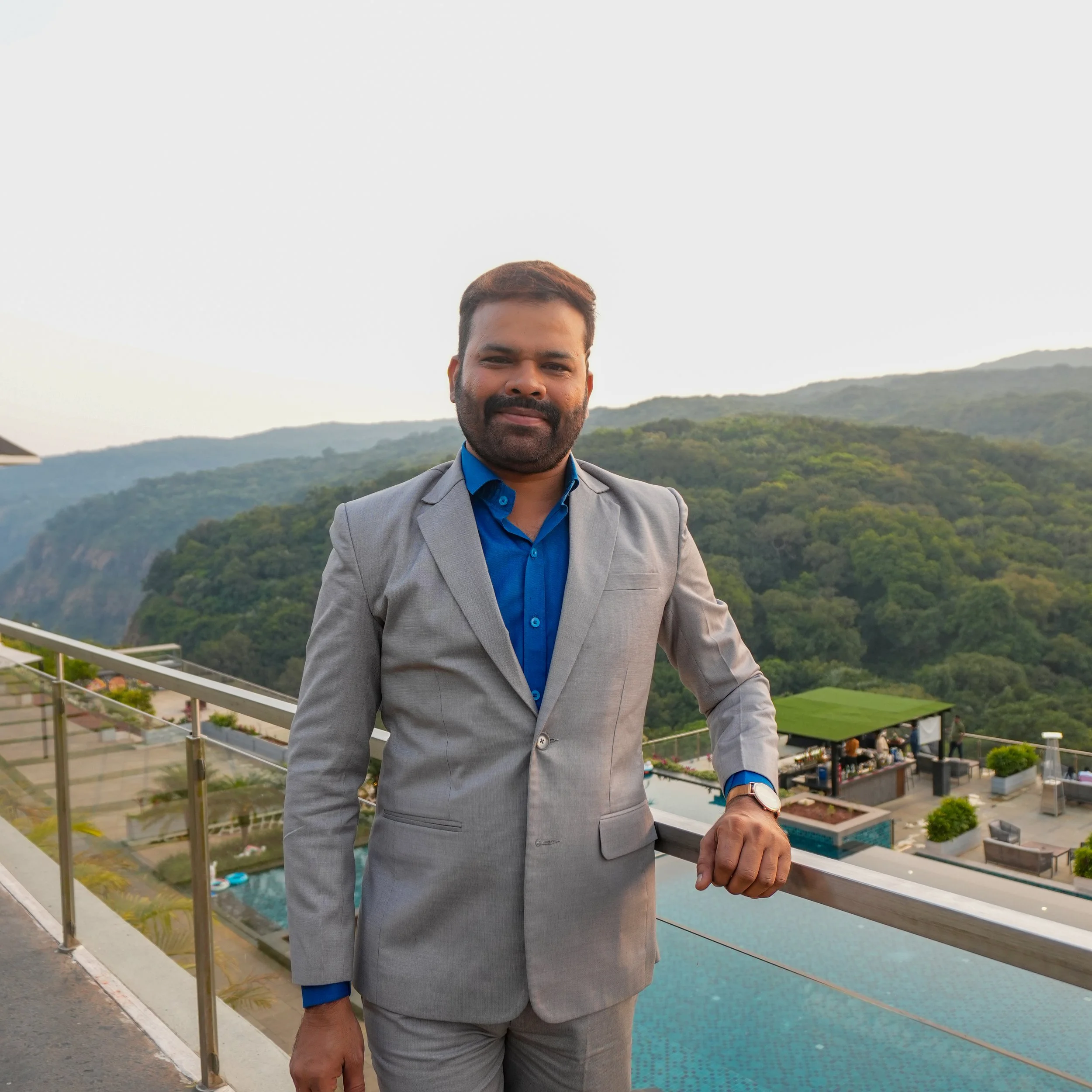Editor: How did it all start? Share your culinary journey with us.
I have gained over 16 years of valuable experience working with prestigious hotel brands such as Hyatt, Accor, and Marriott. During this time, I have had the privilege of being a part of the teams at some of India's most iconic hotels, including Taj Mahal Mumbai, Grand Hyatt Mumbai, Grand Hyatt Goa, Hyatt Regency Mumbai, including various Accor properties in Goa and Mumbai.
Editor: What are your earliest memories of the kitchens you worked in?
I began my culinary journey with humble tasks such as peeling onions, de-shelling prawns, and breaking eggs. Additionally, I was responsible for preparing 45 liters of fresh orange juice each day. In the absence of a chef, I even manned the egg station, where I had the opportunity to engage directly with our esteemed guests.
Editor: A dish your patrons/guests love
As a culinary artist, I do not have a singular favorite dish that I recreate for guests as my creations are constantly evolving. I take pride in my creations and meticulously craft each dish with precision and creativity. However, my passion for excellence drives me to revisit and rework my creations months later with fresh eyes, refining them to new levels of perfection.
Editor: A dish that you love but do not have on your menu
Picture this - a succulent lobster Moilee, delicately spiced with aromatic flavors and served alongside a zesty lemon chili cookie with podi tuile, a perfect harmony of textures and flavors that is sure to tantalize your taste buds. And the best part? This delectable dish is not even on our menu yet!
But wait, there's more! As passionate culinary artisans, we are always seeking new ways to elevate our offerings, and we are thrilled to announce that we will be introducing this exquisite dish to our menu very soon. Stay tuned for the unveiling of this culinary masterpiece that is sure to leave a lasting impression on your palate
Editor: What according to you does it take to become a successful chef?
In the ever-evolving world of culinary arts, one must remain committed to perfection, and that starts at the table. As a passionate culinary artist, my focus is on every intricate detail of the food presented, ensuring that each dish is an unforgettable experience for my guests.
But my passion for excellence doesn't end there. Every day presents an opportunity to improve, to learn new tricks of the trade, and push the boundaries of innovation. Whether it's experimenting with unique flavor combinations or exploring the latest cooking techniques, I am committed to staying ahead of the curve and taking my craft to new heights. After all, there is no greater reward than the satisfaction of seeing my guests relish each and every bite.
Editor: What advice would you give to a young culinary student?
To the next generation of culinary talents, I offer this sage advice: patience, hard work, and passion are the keys to success. The culinary world is a vast and intricate landscape, and it takes time to master the craft. With patience and perseverance, you will hone your skills and develop a deep understanding of the art of cooking.
But beyond just hard work, it's crucial to enjoy what you do. Culinary arts are a labor of love, and it takes genuine passion to create something truly remarkable. Embrace the journey, savor every moment, and never lose sight of your love for the culinary arts. With dedication, passion, and an unrelenting pursuit of excellence, there is no limit to what you can achieve.
Editor: What instruments/ equipment/devices you cannot imagine working without?
A chef's knife is the cornerstone of a culinary artist's toolkit, an essential implement that no kitchen can function without. It is the epitome of a chef's mastery, representing years of experience and skill.
In addition to the chef's knife, mixers and other tools play a crucial role in any culinary endeavor, helping to bring to life the flavors and textures that make each dish unique. But it is the chef's knife that truly sets the stage for a masterful culinary creation, embodying the very essence of a chef's artistry and skill.
Editor: Your favorite ingredient is…
Garlic is, without a doubt, one of my all-time favorite ingredients. It possesses an unparalleled versatility that adds depth and complexity to a wide variety of dishes. The aroma of garlic sizzling in a skillet is nothing short of intoxicating, signaling the start of a culinary adventure.
The distinct crackle and pop that garlic emits as it cooks add an auditory layer to the sensory experience, further enhancing the dish's appeal. Whether used to add a subtle flavor to a sauce or as a dominant ingredient in a stir fry, garlic has the power to elevate any dish to new heights. Its ability to complement a broad spectrum of flavors is truly unparalleled, making it an indispensable ingredient in any culinary arsenal.
Editor: Name chefs, you find amazing or chef's work you admire.
The culinary world is teeming with talented chefs, but there are a few whose work styles have truly captivated me. Thomas Keller, for one, is a culinary legend whose focus on precision and attention to detail have earned him countless accolades.
Rene Redzepi is another chef whose innovative approach to Nordic cuisine has made him a household name. His emphasis on locally sourced ingredients and commitment to sustainability have set him apart as a true trailblazer.
The Roca Brothers are a family trio whose creativity and vision have helped establish their restaurant, El Celler de Can Roca, as one of the world's finest. Their imaginative dishes, inspired by the flavors of their Catalan heritage, are nothing short of masterpieces.
Chef Alex Atala's work style is similarly impressive, with a focus on using locally sourced ingredients to create bold and inventive Brazilian cuisine. And last but not least, Francis Mallmann's expertise in open-fire cooking has earned him a reputation as one of the world's most innovative chefs.
Each of these culinary masters has a unique approach to their craft, and their dedication to excellence is truly inspiring. Their work styles have challenged and inspired me to push the boundaries of my own culinary artistry, and I am grateful for the knowledge and inspiration they have imparted.
Editor: What books should every chef read?
As a culinary artist, I have found that reading is one of the most powerful tools for enhancing my craft. A vast and varied selection of books can offer insights into techniques, flavors, and cultures that you may not otherwise have access to.
Some of my personal favorites include the Éditions Larousse, a veritable treasure trove of culinary knowledge and techniques that can be applied to any style of cuisine. The infamous "Kitchen Confidential" by Anthony Bourdain offers a gritty, behind-the-scenes look at the restaurant industry that is as entertaining as it is informative.
For a more refined palate, "The French Laundry Cookbook" offers a peek into the meticulous and highly refined techniques of Chef Thomas Keller, a master of contemporary American cuisine. And for a taste of local inspiration, "Chefs' Favorites from the Taj" showcases the flavors and techniques of some of India's most celebrated chefs.
Each of these books offers a unique perspective and set of skills that can help take your culinary artistry to the next level. So grab a book, settle in, and prepare to be transported on a culinary journey like no other.



